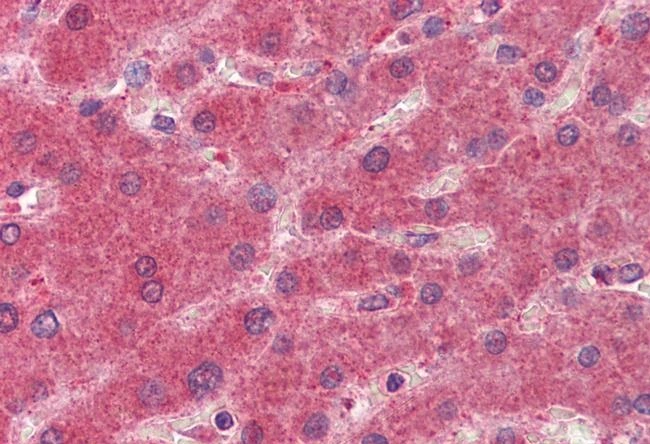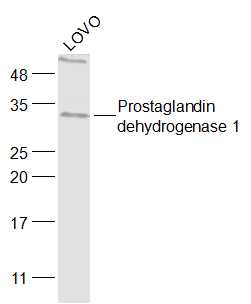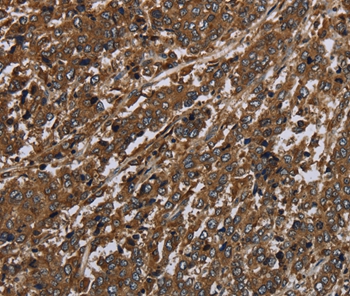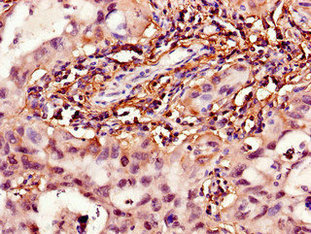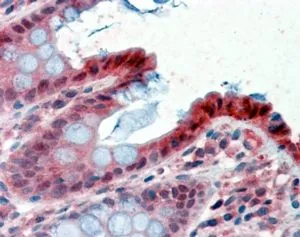
IHC-P analysis of human colon using GTX89634 15-PGDH antibody, C-term. Antigen retrieval : citrate buffer pH 6 Dilution : 2.5μg/ml
15-PGDH antibody, C-term
GTX89634
ApplicationsWestern Blot, ImmunoHistoChemistry, ImmunoHistoChemistry Paraffin
Product group Antibodies
ReactivityHuman
TargetHPGD
Overview
- SupplierGeneTex
- Product Name15-PGDH antibody, C-term
- Delivery Days Customer9
- Application Supplier NoteWB: 0.1-1microg/ml. IHC-P: 2-4microg/ml. *Optimal dilutions/concentrations should be determined by the researcher.Not tested in other applications.
- ApplicationsWestern Blot, ImmunoHistoChemistry, ImmunoHistoChemistry Paraffin
- CertificationResearch Use Only
- ClonalityPolyclonal
- Concentration0.50 mg/ml
- ConjugateUnconjugated
- Gene ID3248
- Target nameHPGD
- Target description15-hydroxyprostaglandin dehydrogenase
- Target synonyms15-PGDH, PGDH, PGDH1, PHOAR1, SDR36C1, 15-hydroxyprostaglandin dehydrogenase [NAD(+)], 15-hydroxyprostaglandin dehydrogenase (NAD(+)), NAD+-dependent 15-hydroxyprostaglandin dehydrogenase, eicosanoid/docosanoid dehydrogenase, hydroxyprostaglandin dehydrogenase 15-(NAD), prostaglandin dehydrogenase 1, short chain dehydrogenase/reductase family 36C member 1
- HostGoat
- IsotypeIgG
- Protein IDP15428
- Protein Name15-hydroxyprostaglandin dehydrogenase [NAD(+)]
- Scientific DescriptionThis gene encodes a member of the short-chain nonmetalloenzyme alcohol dehydrogenase protein family. The encoded enzyme is responsible for the metabolism of prostaglandins, which function in a variety of physiologic and cellular processes such as inflammation. Mutations in this gene result in primary autosomal recessive hypertrophic osteoarthropathy and cranioosteoarthropathy. Multiple transcript variants encoding different isoforms have been found for this gene. [provided by RefSeq, Mar 2009]
- ReactivityHuman
- Storage Instruction-20°C or -80°C,2°C to 8°C
- UNSPSC12352203


